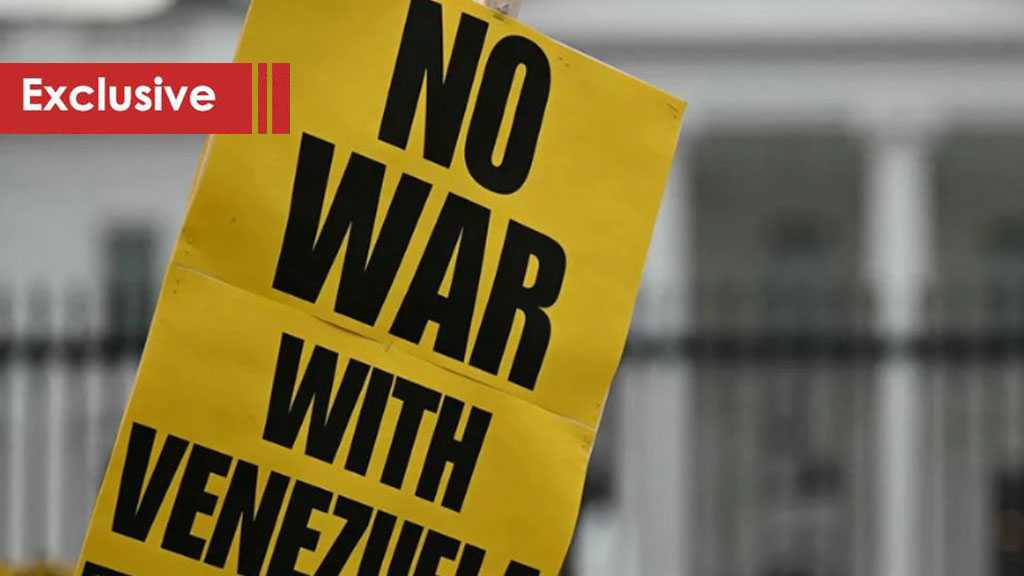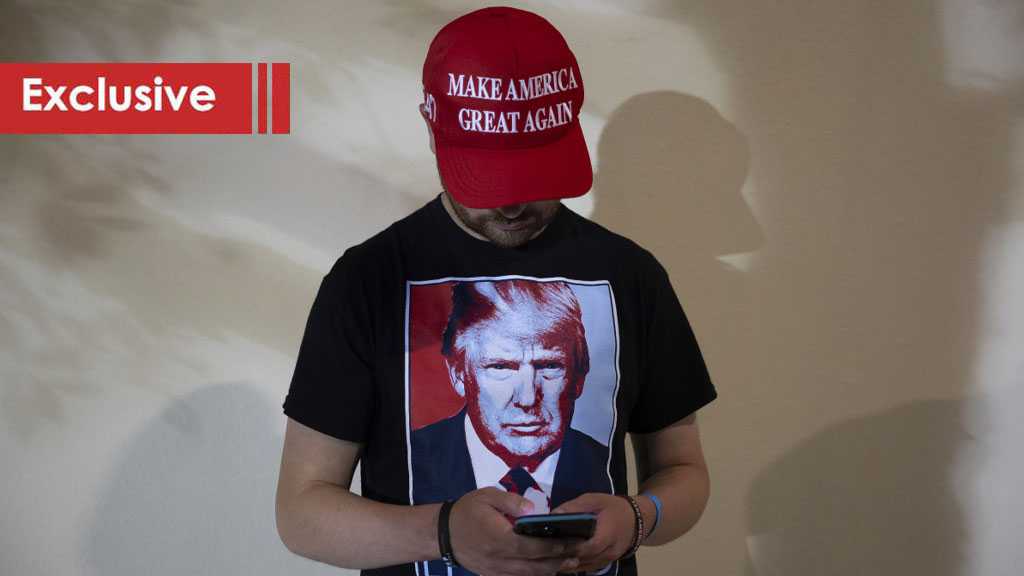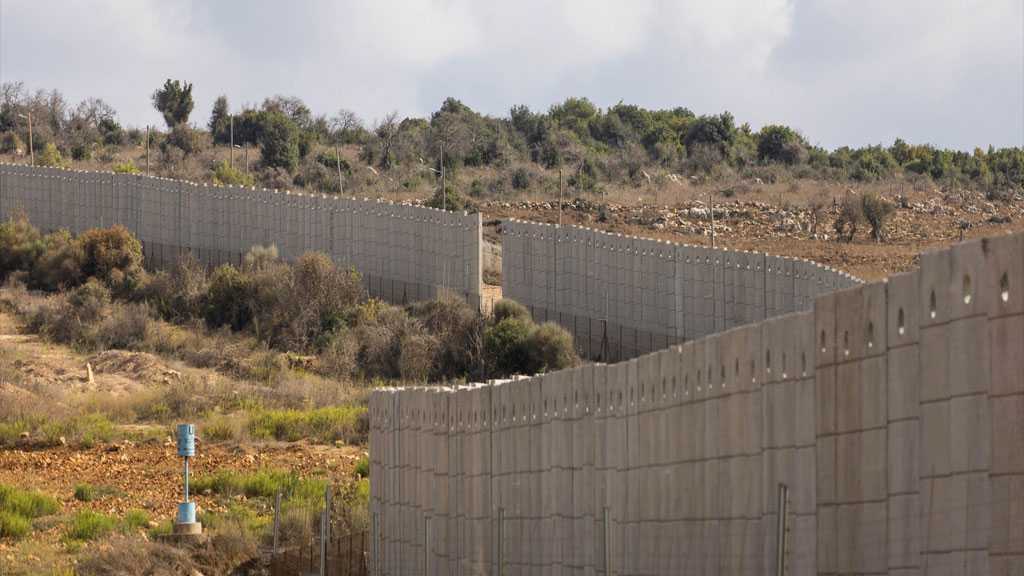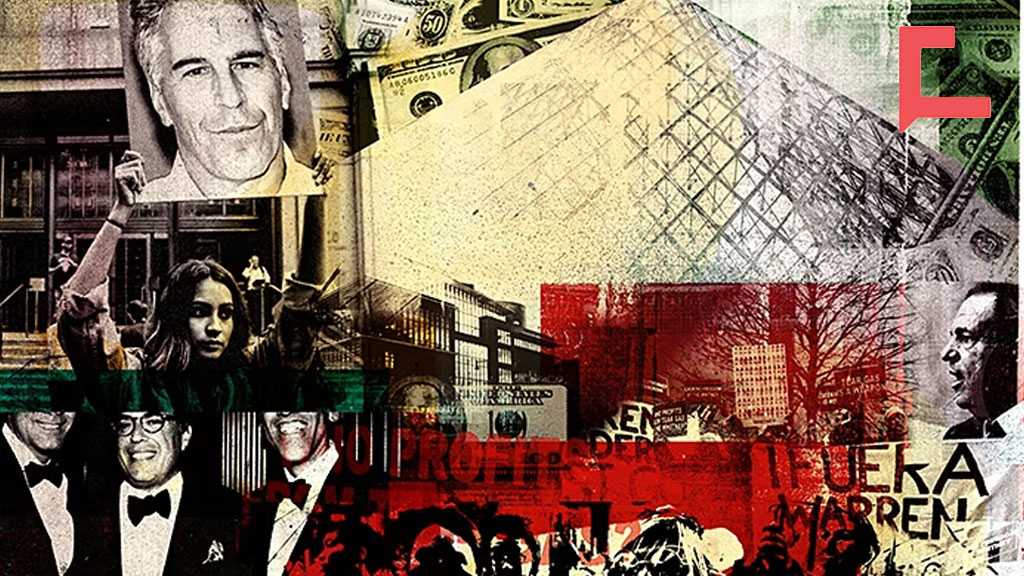Another War for “Israel”: How Washington Sleepwalks Toward Disaster in Venezuela

By Mohamad Hammoud
Washington Risks Catastrophe in Caracas to Serve Foreign Agendas, Not US Interests
When the Trump administration began shaping the case for military action against Venezuela, officials leaned on familiar slogans—“narco-trafficking,” “restoring democracy,” and regional stability. CNN reported these as markers of American resolve, but the deeper logic points elsewhere: a confrontation driven not by US interests, but by the priorities of allies in the Middle East, foremost among them “Israel.”
Senator Marco Rubio has become the administration’s loudest voice on Venezuela. For years, he has framed Caracas as part of a network tied to Iran, Hezbollah and governments hostile to “Israel.” According to Rubio, Venezuela helps Iran bypass sanctions and maintains logistical corridors across Latin America. This narrative positions Nicolás Maduro as part of an axis that “Israel” views as an existential threat.
Rubio’s Network Behind the Push
Rubio’s posture did not appear spontaneously. His rise was fueled by donors and advocacy groups aligned with hard-line pro-“Israel” priorities. The Associated Press has noted that Miriam Adelson, one of the Republican Party’s most influential donors, backed candidates who supported aggressive policies toward Tehran and saw Rubio as a dependable ally for future State Department roles. His voting record consistently aligns with maximum pressure on Iran and unflinching support for foreign-policy positions favored by hawkish pro-“Israel” circles.
This network has reframed Venezuela in Washington’s imagination. What began as a regional governance crisis is now described, particularly by Rubio and his allies, as an extension of Middle Eastern geopolitics.
Turning a Latin American Crisis into a Middle Eastern Battlefield
Under Rubio, Venezuela is increasingly depicted as part of an anti-“Israel” axis rather than a country broken by corruption, mismanagement, and authoritarianism. The humanitarian collapse—documented extensively by the United Nations and regional observers—fades into the background, replaced by narratives about Iranian influence and Hezbollah operatives.
This reframing reshapes US policy. Sanctions, military posturing and covert pressure are justified as measures to counter Iran rather than to address Venezuela’s domestic crisis. Critics told Reuters and AP that such policies reflect ideological pressure rather than sober national-interest calculations.
History Repeats: Lessons Ignored
The United States has repeatedly walked into conflicts under similarly exaggerated premises. Iraq was marketed as a quick strategic victory; it produced sectarian chaos and a draining occupation. Libya, sold as a humanitarian mission, collapsed into civil war. Syria left American power stranded between militias, proxies and regional agendas. Venezuela now faces identical assumptions: neat intervention, rapid political transition, and a pro-US government—expectations that rarely survive first contact with reality.
Russia: A Dangerous New Variable
Unlike past US targets, Venezuela is not isolated. Reuters reported that on May 7, 2025, Vladimir Putin and Nicolás Maduro signed a strategic partnership covering energy cooperation, defense coordination, and joint efforts to resist US sanctions. Russian state media outlined military-technical and financial measures designed to protect both economies from Western pressure.
This creates a volatile reality. Any US strike risks colliding with Russian personnel, advisers, or assets—a modern echo of the Cuban Missile Crisis, analysts told CNN and The Guardian. A destabilized Venezuela would also push millions across Latin American borders, overwhelming Colombia, Brazil and Caribbean states already strained economically.
Oil, Ideology and Manufactured Urgency
Venezuela’s massive oil reserves amplify its global relevance. Yet, analysts say the current push is shaped more by ideology: undermining Iran’s network, satisfying “Israel’s” regional agenda, and responding to donor-driven expectations in Washington. The urgency is real—but manufactured. Venezuela does not threaten US borders or citizens. Its alignment with Iran challenges only “Israel’s” regional adversaries. For some in Washington, that appears sufficient justification.
Sleepwalking Into Someone Else’s War
If the United States moves toward military action, it will not defend its citizens. It will advance a foreign-policy worldview imported from another region’s conflicts, shaped by ideological allies and donor networks. The cost—measured in civilian lives, regional instability and US credibility—would fall on Venezuelans and Americans alike.
This is not a strategy. It is sleepwalking into disaster, another war fought for priorities that are not America’s to begin with.



